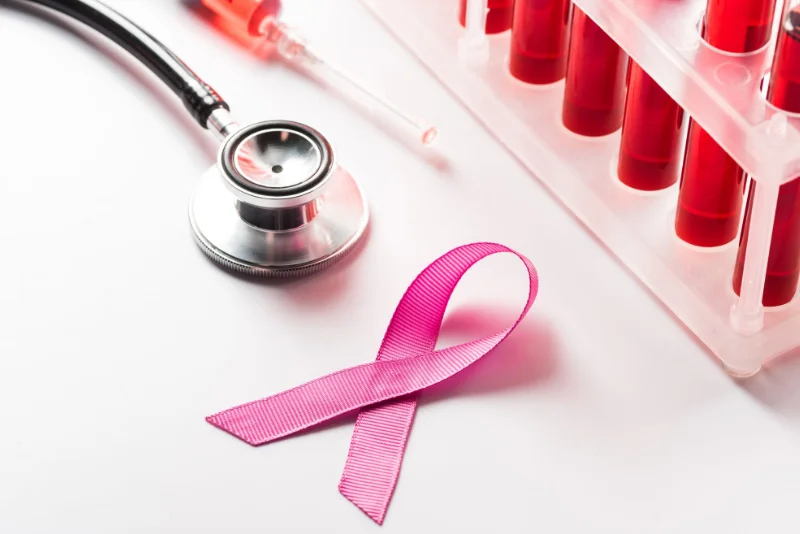If you visit your doctor for any health concerns or complaints, there is a high chance that he will ask for a complete blood count or CBC to investigate your complete health status.
CBC or complete blood count is a blood test that allows doctors to measure various types of blood cells in the sample and detect some major infections, diseases, and conditions; estimating your overall health profile in a much better way.
What does a CBC detect?
CBC is a major part of a routine checkup that plays a fundamental role in diagnosing various diseases and deficiencies in the body. CBC evaluates the parameters of the body including:
What Types of Cancer Can a CBC Detect?
The abnormal increase or decrease in cell count in the CBC report can detect an underlying medical condition and calls for more evaluation processes and further tests must be conducted following the CBC.
Blood cancer is the most suspicious type of cancer as a result of abnormal CBC reports. Several varieties of blood cancer can also be witnessed depending on the affected locations. Defects in bone marrow and functioning may also cause blood cancer with many genetic and environmental factors involved that can lead to this situation.
Leukemia:
Leukemia occurs in the human body due to the rapid increase of immature white blood cells causing failure in the cell maturation process. Leukemia is a type of blood cancer caused by a mutation in the DNA. Many other factors also provoke leukemia including lifestyle, genes, or some infections in the body cells.
With the help of CBC findings, there is much information doctors can perceive about leukemia.
The main types of leukemia are listed below:
-
Chronic Myeloid Leukemia (CML)
-
Chronic Lymphocytic Leukemia (CLL)
-
Acute Myeloid Leukemia (AML)
-
Acute Lymphocytic Leukemia (ALL)
-
Hairy Cell Leukemia
CBC Findings Suggesting Acute Leukemia
-
Normal or high mean corpuscular volume (MCV) in the blood
-
Increment in total white blood cell (WBC) count
-
Decrease in platelet count
-
Severe normochromic anemia
-
Presence of immature blood cells
CBC Finding Suggesting Chronic Myeloid Leukemia
-
White blood cell (WBC) count is greater than 20,000
-
Platelets count can be normal, increased, or decreased
-
Premature myeloblasts in peripheral smear
-
Normocytic, Normochromic Anemia
CBC Finding Suggesting Chronic Lymphocytic Leukemia
-
White blood cell (WBC) count is greater than 50,000
-
Platelets count can be normal or reduced
-
Presence of prolymphocytes and less mature appearing lymphocytes in peripheral smear
-
Anemia (Mild to moderate)
CBC Finding Suggesting Hairy Cell Leukemia
Lymphoma:
Lymphoma is another type of cancer that can be detected using CBC findings. This generally lives in the lymph systems which serve as parts of the body’s immune system aiding it in fighting back against germs and infections.
Typically, there are three varieties of Lymphoma, including:
CBC Finding Suggesting Hodgkin’s Lymphoma
-
Reduced lymphocytes with an increase in neutrophils and eosinophils
-
Presence of microcytic anemia in advanced stages
-
Normocytic, normochromic anemia
CBC Findings Suggesting Non-Hodgkin’s Lymphoma
CBC Finding Suggesting Burkett’s Lymphoma
Myeloma:
Also known as multiple myeloma, myeloma is the type of blood cancer formed in the bone marrow through plasma cells.
CBC Findings Suggesting Myeloma:
Other Types of Cancer and CBC Results
The above list provides all the types of cancer that can be detected using CBC findings. However, there are more suspicious diseases that can be detected using a complete count CBC. This may include cancers of the breast, stomach, ovaries, and several other types. Meanwhile, this must be kept in mind that CBC is not the complete test to diagnose the specific type of cancer.
CBC only works as a tool to help doctors evaluate the patient's condition and suggests further screening tests according to the result. Several mandatory blood tests are also conducted paired with CBC to get the most precise diagnosis for cancer patients.
Our clinical experts continually monitor the health and medical content posted on CURA4U, and we update our blogs and articles when new information becomes available. Last reviewed by Dr.Saad Zia on April 19th, 2023.
References
Mayo Clinic. (2021). Complete Blood Count (CBC). https://www.mayoclinic.org/tests-procedures/complete-blood-count/about/pac-20384919
American Cancer Society. Blood Tests. Tests for Acute Myeloid Leukemia (AML) (cancer.org)
American Society of Clinical Oncology. Leukemia - Acute Myeloid - AML: Subtypes and Prognostic Factors
Cancer Research UK. (2021). Blood tests to diagnose myeloma. Blood test | Tests and scans | Cancer Research UK
Leukemia & Lymphoma Society. Burkitt Lymphoma. Lymphoma | Learn About Lymphatic System Blood Cancers | LLS
Myeloma UK. Diagnosing Myeloma. Diagnosis - Myeloma UK
American Society of Clinical Oncology. Tests for Non-Hodgkin Lymphoma











